Filter by
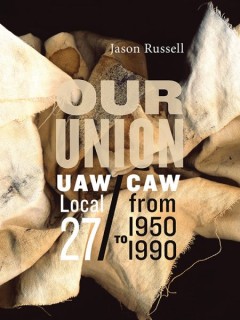
Our Union UAW/CAW Local 27 from 1950 to 199
In Our Union, Jason Russell argues that the union local, as an institution of working-class organization, was a key agent for the Canadian working class as it sought to create a new place for itself in the decades following World War II. Using UAW/CAW Local 27, a broad-based union in London, Ontario, as a case study, he offers a ground-level look at union membership, including some of the socia…
- Edition
- -
- ISBN/ISSN
- 978-1-926836-43-0
- Collation
- -
- Series Title
- Fabriks: Studies in the Working Class
- Call Number
- 336 pages
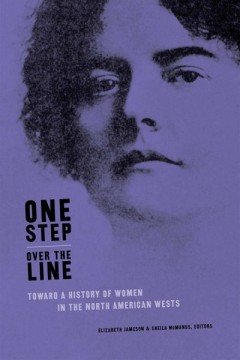
One Step Over the Line Toward a History of Women in the North American Wests
Sixteen essays arising from the “Unsettled Pasts: Reconceiving the West through Women’s History” conference at the University of Calgary comprise this foundational text. One Step Over the Line is not only the map; it is the bridgework to span the transnational, gendered divide—a must for readers who have been searching for a wide, inclusive perspective on our western past.
- Edition
- -
- ISBN/ISSN
- 9780888645012.01
- Collation
- -
- Series Title
- The West Unbound: Social and Cultural Studies
- Call Number
- 474 pages
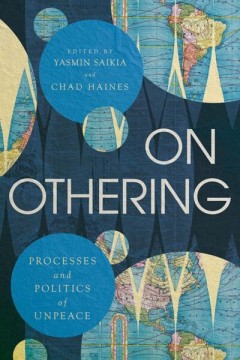
On Othering Processes and Politics of Unpeace
On Othering: Processes and Politics of Unpeace examines the process of othering from an international perspective and considers how it undermines peacemaking and is perpetuated by colonialism and globalization. Taking a humanistic approach, contributors argue that celebrating differences can have a transformative change in seeking peaceful solutions to problems created by people, institutions, …
- Edition
- -
- ISBN/ISSN
- 9781771993876
- Collation
- -
- Series Title
- -
- Call Number
- 6 x 9, 360 pages
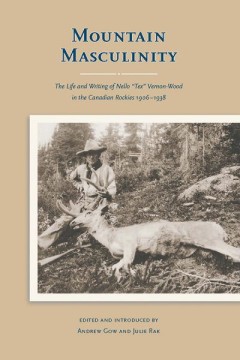
Mountain Masculinity The Life and Writing of Nello “Tex” Vernon-Wood in …
In 1906, Nello Vernon-Wood (1882–1978) reinvented himself as Tex Wood, Banff hunting guide and writer of “yarns of the wilderness by a competent outdoorsman.” His homespun stories of a vanishing era, in such periodicals as The Sportsman, Hunting and Fishing, and the Canadian Alpine Journal, have much to tell us about the west as envisioned by those who wanted to leave the industrialized w…
- Edition
- -
- ISBN/ISSN
- 9781897425022.01
- Collation
- -
- Series Title
- -
- Call Number
- 237 pages
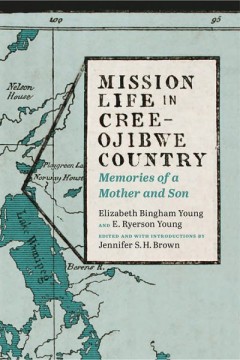
Mission Life in Cree-Ojibwe Country Memories of a Mother and Son
Accompanying Elizabeth’s memoir, and offering a counterpoint to it, are the reminiscences of her eldest son, “Eddie.” Born at Norway House in 1869 and nursed by a Cree woman from infancy, Eddie was immersed in local Cree and Ojibwe life, culture, and language, in many ways exemplifying the process of reverse acculturation often in evidence among the children of missionaries. Like those of…
- Edition
- -
- ISBN/ISSN
- 9781771990035.01
- Collation
- -
- Series Title
- Our Lives: Diary, Memoir, and Letters
- Call Number
- 336 pages
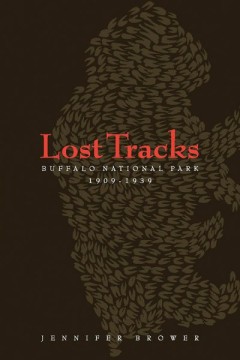
Lost Tracks Buffalo National Park, 1909–1939
While contemporaries and historians alike hailed the establishment of Buffalo National Park in Wainwright, Alberta as a wildlife saving effort, the political climate of the early twentieth century worked against its efforts to stem the decline of the plains buffalo in North America. However, the branch charged with operating the park, the Canadian Parks Branch, was never sufficiently funded and…
- Edition
- -
- ISBN/ISSN
- 9781897425107.01
- Collation
- -
- Series Title
- -
- Call Number
- 193 pages
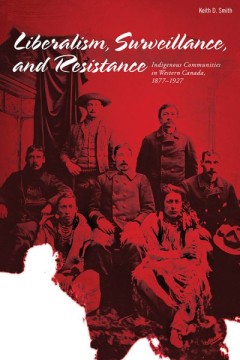
Liberalism, Surveillance, and Resistance Indigenous Communities in Western C…
Canada is regularly presented as a country where liberalism has ensured freedom and equality for all. Yet with the expansion of settlers into the First Nations territories that became southern Alberta and BC, liberalism proved to be an exclusionary rather than inclusionary force. Between 1877 and 1927, government officials, police officers, church representatives, ordinary settlers, and many ot…
- Edition
- -
- ISBN/ISSN
- 978-1-897425-39-8
- Collation
- -
- Series Title
- The West Unbound: Social and Cultural Studies
- Call Number
- 334 pages
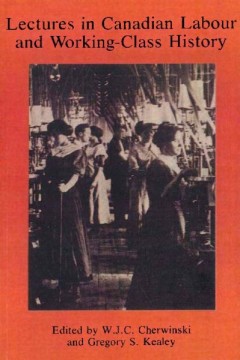
Lectures in Canadian Labour and Working-Class History
In 1983 and 1984 the Canadian Studies Program of the Secretary of State funded four lecture series at Canadian universities on the history of the Canadian working class. This volume presents many of the lectures in a published version. Ranging from east to west and covering two centuries of Canadian labour history, the volume includes a selection of essays by some of Canada’s leading social h…
- Edition
- -
- ISBN/ISSN
- 0-9692060-0-3
- Collation
- -
- Series Title
- CCLH Publications
- Call Number
- -
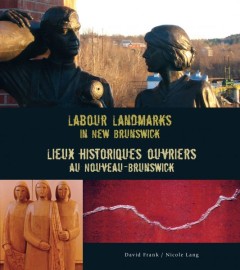
Labour Landmarks in New Brunswick | Lieux historiques ouvriers au Nouveau-Bru…
Une aventure originale en histoire publique — une tournée de 50 lieux où des familles, des travailleuses et des travailleurs, des syndicats et des communautés ont reconnu la place des travailleuses et des travailleurs dans l’histoire du Nouveau-Brunswick du 20e siècle. Dix courts chapitres, des notes explicatives, des illustrations et une carte.
- Edition
- -
- ISBN/ISSN
- 978-1-894000-09-3
- Collation
- -
- Series Title
- CCLH Publications
- Call Number
- -
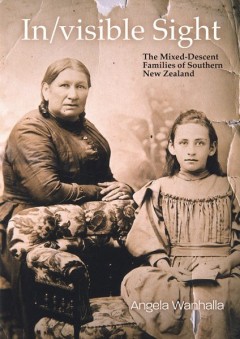
In/visible Sight The Mixed-Descent Families of Southern New Zealan
Angela Wanhalla begins her story in Maitapapa, Taieri, New Zealand, the mixed-descent community where her great-grandparents, John Brown and Mabel Smith, were born. As In/visible Sight takes shape, a community emerges from the records, re-casting history and identity in the present. Drawing on the experiences of mixed-Maori/White families, Wanhalla examines the early history of southern New Zea…
- Edition
- -
- ISBN/ISSN
- 978-1-877242-43-4
- Collation
- -
- Series Title
- -
- Call Number
- -
 Computer Science, Information & General Works
Computer Science, Information & General Works  Philosophy & Psychology
Philosophy & Psychology  Religion
Religion  Social Sciences
Social Sciences  Language
Language  Pure Science
Pure Science  Applied Sciences
Applied Sciences  Art & Recreation
Art & Recreation  Literature
Literature  History & Geography
History & Geography